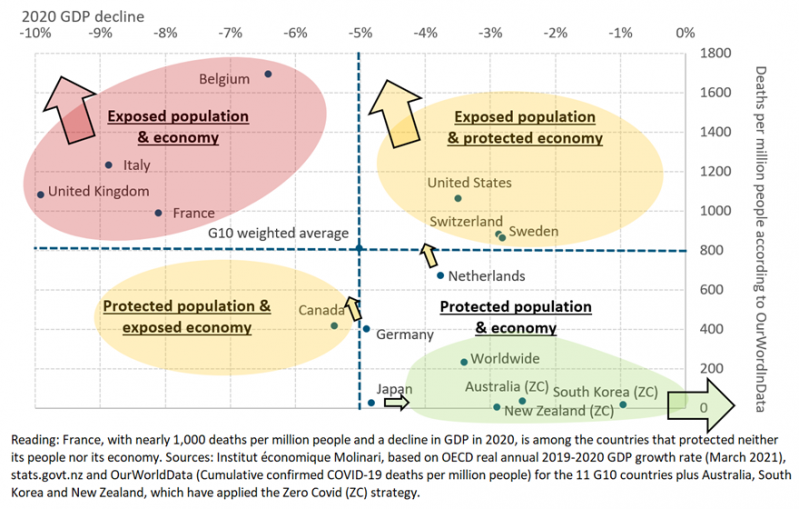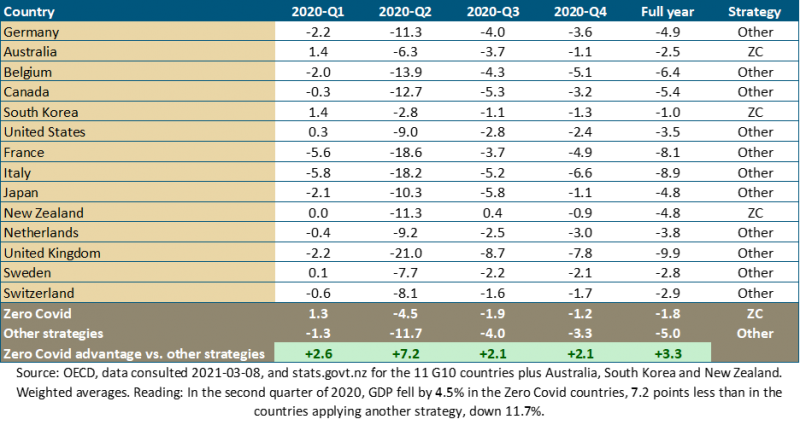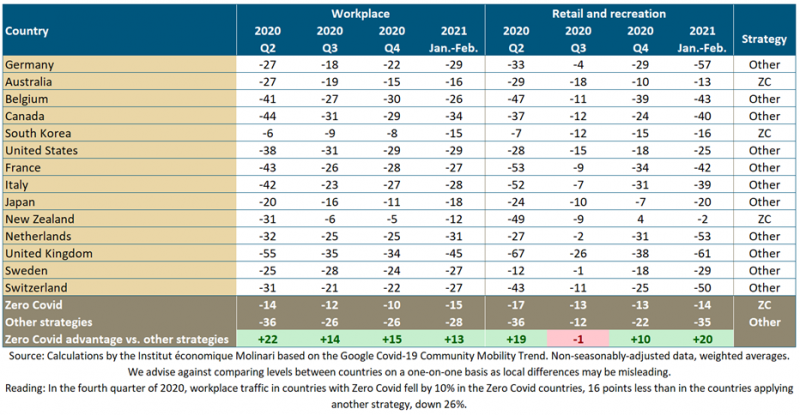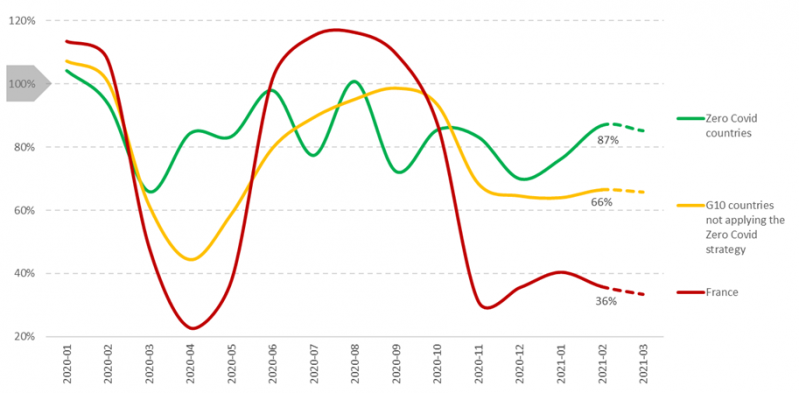

The Zero Covid strategy is by far the most effective way to fight the current pandemic as show a comparison of the G10 countries to three OECD countries that have implemented an elimination strategy (Australia and New Zealand) or something similar (South Korea). After a Covid-19 fight lasting more than 12 months, the data show the value of the elimination strategy and contradict the idea, widespread in France and in most Western countries, that it was necessary to choose between protecting the economy and protecting public health on the grounds that these two goals were in conflict. At this stage, experience shows the elimination strategy (Zero Covid) to be more effective in both health and economic terms than the mitigation strategy applied in many countries.
Covid: The countries that performed best protected both their people and their economies in 2020

Change in quarterly GDP compared to the same period a year earlier (%)

Change in Google “workplace” and “leisure and retail” mobility indices compared to a 5-week benchmark period in early 2020 (%)

Cross-referencing of quarterly economic and health data confirms the superiority of the elimination strategy in terms of anticipation. People in those countries benefit from a level of visibility enabling them to project their societies and economies into the future.
In contrast, the course taken by the G10 countries has produced fluctuations, with the epidemic rebounding in the fourth quarter of 2020 everywhere except Japan, which is moving closer to Zero Covid. The mitigation strategy is causing them to seesaw, making it difficult to project into the future and thereby penalising societies and economies. This is especially problematic for businesses that depend on significant social interaction, which have been closed for months, as representatives of the hotel, restaurant, culture and recreation sectors have stated repeatedly.
In February 2021, Google searches for the word “Restaurant” were 64% lower than in February 2019. This decline was five times greater than in the Zero Covid countries, where restaurants are open and searches are down only 13% from February 2019.
Restaurants better protected in the Zero Covid countries: the example of changes in the number of Google searches for “Restaurant” compared to the same month in 2019

Source: Calculations by the Institut économique Molinari based on Google Trends.
Participation in economic and social life is a function of people’s confidence in being able to take part without running the risk of falling ill, contaminating others or seeing health services overwhelmed.
It is not only government-imposed restrictions that reduce movement. Voluntary decisions by individuals to cut back on social life in the face of a fast-spreading virus also play a key role. The Swedish example shows the importance of this phenomenon since, even without a lockdown, the decline in mobility was significant. This explains why Sweden’s economic contraction was close to the levels observed in Scandinavian countries that went into formal lockdown. Where the elimination strategy is implemented, the end of the tunnel becomes predictable, and it is then possible to make reliable long-term plans, resulting in stronger economic performance and lower mortality.
Philippe Cécile and Nicolas Marques (2021), “The Zero Covid strategy protects people and economies more effectively”, Institut Économique Molinari, Paris-Brussels, April.
The full report “The Zero Covid strategy protects people and economies more effectively” is available on IEM’s website at https://www.institutmolinari.org/2021/04/03/the-zero-covid-strategy-protects-people-and-economies-more-effectively/